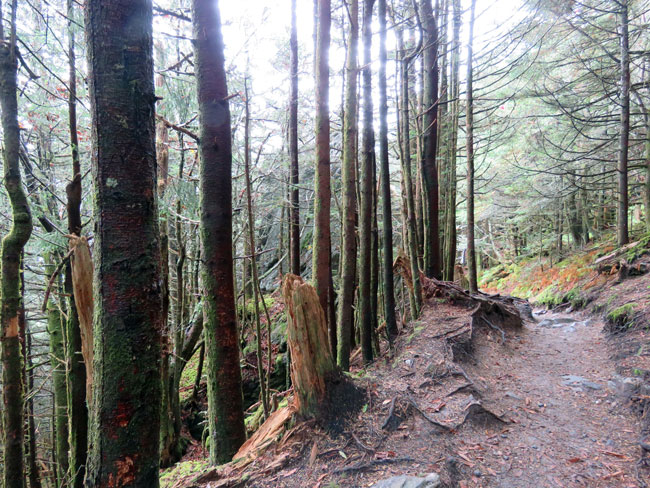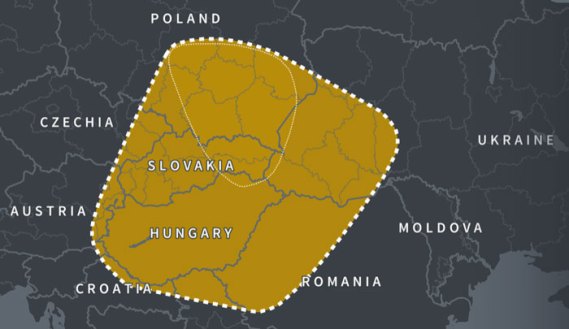
Mount Mitchell State Park
Another trail! After visiting Mount Mitchell’s peak we found the Balsam Nature Trail, a 3/4 mile loop off of the Summit Tower Trail. The terrain here was very uneven, much to Tim’s relief after the flat pavement going up to the summit. Lots of up and down, even steps in some places and narrow passages between outcrops.

We didn’t encounter any wildlife or hear any birds calling. I’m guessing because this is a well-traveled trail and the creatures are hiding from people, if they are there at all. Every few minutes a couple or a family or small group of friends would overtake us and pass us. And just as often we’d pass folks hiking in the opposite direction. It was the most traffic we’ve ever experienced on a trail.




The best part of this walk could not be photographed — it was the amazing scent of balsam and Fraser fir. What an unforgettable olfactory delight!

Sadly, though, there wasn’t much left of healthy evergreen foliage. Most of the green we saw was mosses and ferns.

I am very familiar with the hemlock woolly adelgid insect pest that destroyed the hemlock grove surrounding my childhood home. It originated in East Asia and arrived here in 1951. According to Wikipedia, by 2015 90% of the geographic range of eastern hemlock in North America had been affected.

But I had never heard of the balsam woolly adelgid until I saw it mentioned on a trailside sign, explaining why there were so many dead and dying trees in this forest. This insect pest arrived here from Europe in 1900 and was discovered in this forest in 1957. The devastation is obvious in many of these pictures.

Mosses and mushrooms seem to be thriving with such an abundance of dead wood. I tried to identify the moss in the above picture — it seems to be some kind of feather moss. It looked different than the mosses I usually see. According to Britannica there are approximately 12,000 species of moss distributed throughout the world.

The spruce-fir forest is a forest type dominated by needle-leaved, evergreen red spruce and Fraser fir trees. It exists only at elevations above 5,500 feet, and contains plants and animals that are adapted to cool, moist conditions. Some of the plants and animals living in Mt. Mitchell’s spruce fir forest are found over much of the state. Others, however, are the same as (or are close relatives of) those found in the spruce-fir forests of New England or southern Canada.
~ trailside sign

The climate of a spruce-fir forest can be harsh. Wind and ice storms are facts of life here: trees with their tops missing are common sights. And, as with any high-elevation ecosystem, rain, fog, sleet or snow can occur unpredictably — in any month, at any time of day.
~ trailside sign



Though spruce-fir forests are found in a broad region of northern North America, they occur south of New England only in a thin zone along the Appalachian Mountain chain.
~ trailside sign


All that being said, I was still enchanted with this forest and will cherish my memories of this little taste of New England here in North Carolina.















